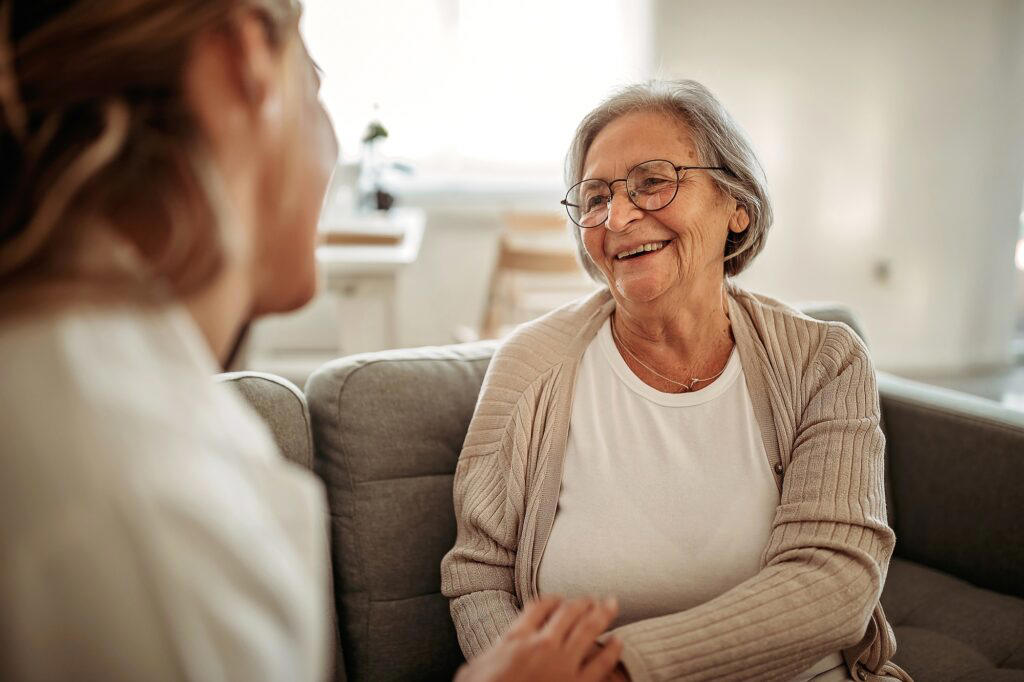Turning the tables on dementia
It begins subtly. A loved one becomes more forgetful, finding it harder to remember things they once had no trouble recalling. They misplace everyday items, like car keys or mobile phones, and become confused doing routine tasks like supermarket shopping, managing money, or preparing dinner.
Sometimes people become withdrawn and moods veer from happy to unexpectedly angry and frustrated. Gradually, these changes become more debilitating and entrenched. For the person experiencing these symptoms, and for the family who love them, the effects are devastating.
Dementia describes a range of symptoms caused by disorders affecting the brain. The most common form of dementia is Alzheimer’s disease, which accounts for about 70 per cent of cases.
In 2024, Dementia Australia and the Australian Institute of Health and Welfare say more than 421,000 people are living with dementia. By 2054, that figure could almost double.
Worldwide, more than 55 million people have dementia and around 10 million new cases are diagnosed each year, says the World Health Organization (WHO). That’s one person diagnosed every three seconds.

The statistics paint a grim picture, but in recent years there have been signs the tables are being turned on the rise of dementia. We spoke to Australian researchers about how their work is making a difference.
Diagnosing dementia more effectively
There’s no cure for dementia, although researchers are optimistic they’ll eventually discover the holy grail that stops dementia in its tracks.
In the meantime, Associate Professor Simone Reppermund from the Centre for Healthy Brain Ageing (CHeBA) at the University of New South Wales is developing an online tool to identify early dementia.
It assesses how well people perform everyday activities like shopping for items on a list, finding their doctor’s contact details online, calling their GP to make an appointment, managing their finances and renewing a prescription. In a virtual environment, each person has an avatar who must carry out these tasks, with clinicians then assessing how well the person performs to determine if they are displaying early signs of dementia.
“The gold standard for diagnosis would be an occupational therapy assessment, but that takes hours and a lot of resources,” says Associate Professor Reppermund.
“So, clinicians mostly rely on subjective reports to make an assessment. They ask the person with early dementia or a family member, and the person with potential early dementia may overestimate their abilities and caregivers often underestimate the person’s abilities.
“By contrast, our diagnostic tool rates performance in a standardised and objective way. It’s easy to use and it only takes about 20 minutes.”
Associate Professor Reppermund is still recruiting people aged 60 and over who live in Sydney to test the tool. If trials continue successfully, she hopes clinicians could be using it by next year.
Groundbreaking drugs to target brain plaque
Alzheimer’s disease physically impacts the brain and as brain cells gradually degenerate, so does a person’s memory, thinking skills, emotions, behaviour and mood. This cascade of effects is triggered by the build-up of abnormal proteins, called beta-amyloid plaques, on the outside of brain cells.

Scientists and researchers are looking at new ways of diagnosing dementia.
In a major breakthrough involving researchers around the world, including Australia, two new drugs have been developed that attack the damaging amyloid build-up in the brain.
The drugs, lecanemab and donanemab, are currently being reviewed by the Therapeutic Goods Administration (TGA) in Australia and, if approved by the TGA and Pharmaceutical Benefits Advisory Committee, could be prescribed later this year or in 2025.
“These drugs would be the first direct treatment for Alzheimer’s disease,” says Professor Matthew Kiernan, CEO of Neuroscience Research Australia (NeuRA).
“In clinical trials they’ve been proven to have benefit. PET scans of the brain show that the amyloid load in the brain goes down and memory function doesn’t decline as rapidly as it would without the treatment.”
The drug would be administered every two to three weeks through an intravenous drip at an approved health centre. Professor Kiernan also says that if the drugs are approved, it may take a few years for supplies to become widely available.
“This is not a cure but it will slow the progression of Alzheimer’s so people have a milder form of the disease for longer. This is a massive development and the first proof that we can make a difference to this disease through treatment,” says Professor Kiernan. “These drugs are a game changer.”
Detecting dementia before it appears
Until now, diagnosing Alzheimer’s disease has involved a person having a PET scan or an invasive lumbar puncture.

PET scans create images that highlight areas of the brain where toxic amyloid proteins are building up, affecting brain function, while a lumbar puncture collects fluid from around the spinal cord to see if proteins associated with the development of Alzheimer’s disease are present.
But in the future a simple blood test could be used instead. Professor Ralph Martins, Director of Research at Alzheimer’s Research Australia, is part of a team developing a blood test to detect Alzheimer’s disease, just like a cholesterol test can detect heart disease risk. With enough funding, the test could be available within three to four years.
Importantly, the test could detect Alzheimer’s disease 15 years before symptoms appear – allowing people to take action to slow down, or even prevent, the disease. And it could become part of routine health screening, like mammograms, blood pressure checks and bowel screening.
“We’ve been able to show that specific proteins measured in the blood reflect changes in the brain linked to Alzheimer’s disease and we can pick these up before symptoms appear,” says Professor Martins.
“If people know they’re at risk, they can make lifestyle changes that help reduce dementia risk, like eating a Mediterranean diet, not smoking and exercising their body and mind. Those people could also be given the latest drugs that lower amyloid levels in the brain, before it can do any damage.”
Using music to calm dementia distress
It could be a Frank Sinatra ballad or an upbeat modern pop tune – the power of music is being harnessed by Professor Felicity Baker to ease the agitation that often comes with dementia.
Professor Baker, a music therapist at the University of Melbourne, is developing a music-based app combined with wearable sensors and AI to detect the onset of symptoms of distress in dementia patients. When sensors detect a person is becoming distressed, the app responds by playing personalised music to help reduce agitation.
“About 90 per cent of people with dementia show symptoms of agitation and distress. As the disease progresses, these behaviours become more challenging for them and people caring for them,” says Professor Baker.
“The person wears a sensor, perhaps a watch with sensors and a Bluetooth speaker or headphones. The sensor captures data like their heart rate, respiration rate and movement such as pacing, fiddling with buttons or hitting out,” she explains.

Scientists and researchers are proposing that listening to music may be a part of dementia treatment.
“Music is linked with emotions and memories so when someone is confused and agitated, something familiar like a piece of music from their past helps them feel safe in a chaotic world. Music generates positive memories and regulates their distress.
“It can also create a way for family to connect with the person because as music triggers memories, that person may become lucid and connected to reality again, even for a few minutes. To have those moments of connection can help carers do it all again the next day.”
Learning how lifestyle can reduce the risk
Lifestyle contributes to how likely we are to develop dementia as we age – it’s a factor in about 50 per cent of cases. High blood pressure, midlife obesity, lack of physical activity, smoking and not exercising your brain can all increase the likelihood of a dementia diagnosis.
Professor Kaarin Anstey, UNSW Ageing Futures Institute director and Principal Research Scientist at NeuRA, has developed a free, user-friendly risk assessment tool, CogDrisk, available to anyone who wants to check their risk and make lifestyle changes to reduce that risk.
“This is a massive development and the first proof we can make a difference.”
Professor Kiernan
“A lot of people don’t know the lifestyle risk factors. CogDrisk highlights what lifestyle changes they can make to improve their brain health, such as sitting down less, eating more fruits and vegetables and less processed food, or taking a brisk walk every day,” says Professor Anstey.
She is also developing and trialling a program called MyCOACH for people over 65 concerned about memory and cognition. The course teaches people how to take care of brain health, the importance of being active, eating well and having social connections, and includes strategies to exercise memory.
“We need more solutions for people at increased risk of dementia down the track,” says Professor Anstey. “We’re at an exciting point in the world of dementia – there’s a lot of hope.”
